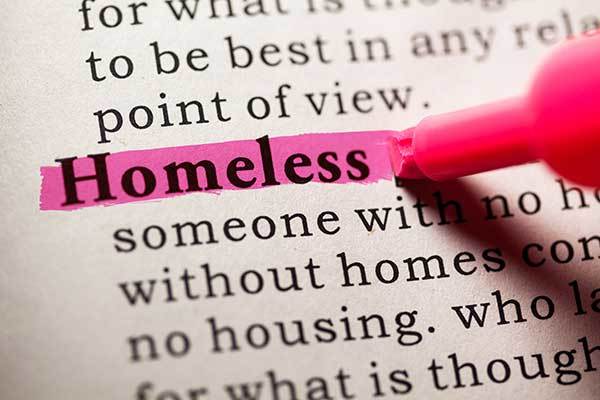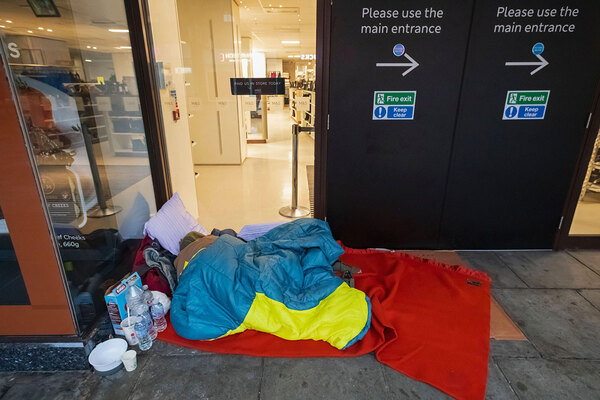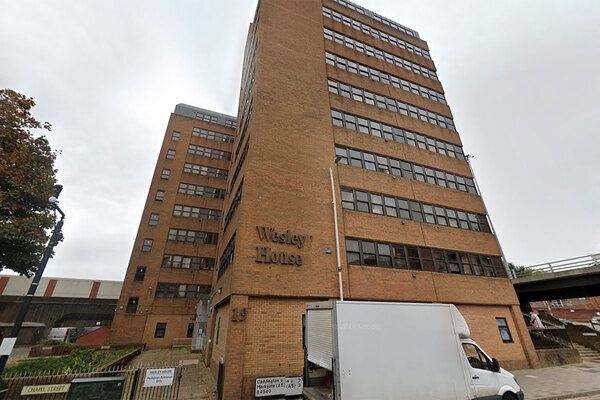You are viewing 1 of your 1 free articles
Councils take on Homelessness Reduction Act duties for 58,660 households
Councils accepted homelessness duties for more than 65,000 households in the first three months after new laws aimed at keeping people in stable homes were introduced.
However, the number of households in temporary accommodation still rose 5% in the 12 months to the end of June, up to 82,310.
That is a 71% increase since 31 December 2010 and includes 123,630 children.
In April, ministers introduced the Homelessness Reduction Act, which places new responsibilities on local authorities to help homeless people or those threatened with homelessness.
The legislation places greater emphasis on prevention – with councils now required to assess more homeless applications, provide more advice services and support people to enter or remain in stable accommodation for a longer period.
Official figures released yesterday show that from April to June, 58,660 households were deemed to be owed one of the new statutory homeless duties under the Homelessness Reduction Act by councils in England.
Of these, 33,330 needed help to prevent them from becoming homeless, while another 25,330 required relief from homelessness.
Birmingham, Leeds and County Durham councils each accepted new homelessness duties for more than 1,000 households.
Over the three months, 10,800 households were helped to secure accommodation for at least six months through councils carrying out their Homelessness Reduction Act duties.
Councils also accepted main homelessness duties – which apply to households where homelessness cannot be prevented or relieved in 56 days – for 6,670 households.
That figures is 57.7% lower than the same quarter last year and only 560 of these households had applied for help after the Homelessness Reduction Act came into force.
Homelessness minister Heather Wheeler said: “It is good to see our Homelessness Reduction Act making a real difference but we know we need to do more.
“That is why we are investing £1.2bn to tackle all forms of homelessness, we are putting £9bn into our affordable housing programme and we are also empowering councils to borrow to build more council homes to ensure that more people have a home of their own.”
Terrie Alafat, chief executive of the Chartered Institute of Housing, said: “It is still very early days for the Homelessness Reduction Act, which came into force in April, but it does appear to be having an impact, with local authorities providing help for more people through their new duties.
“It’s crucial that the government makes sure that councils have enough resources to deliver appropriate assistance effectively.”
At a glance: Homelessness Reduction Act 2017
The Homelessness Reduction Act 2017 came into force in England on 3 April 2018.
The key measures:
- An extension of the period ‘threatened with homelessness’ from 28 to 56 days – this means a person is treated as being threatened with homelessness if it is likely they will become homeless within 56 days
- A duty to prevent homelessness for all eligible applicants threatened with homelessness, regardless of priority need
- A duty to relieve homelessness for all eligible homeless applicants, regardless of priority need
- A duty to refer – public services will need to notify a local authority if they come into contact with someone they think may be homeless or at risk of becoming homeless
- A duty for councils to provide advisory services on homelessness, preventing homelessness and people’s rights free of charge
- A duty to access all applicants' cases and agree a personalised plan














